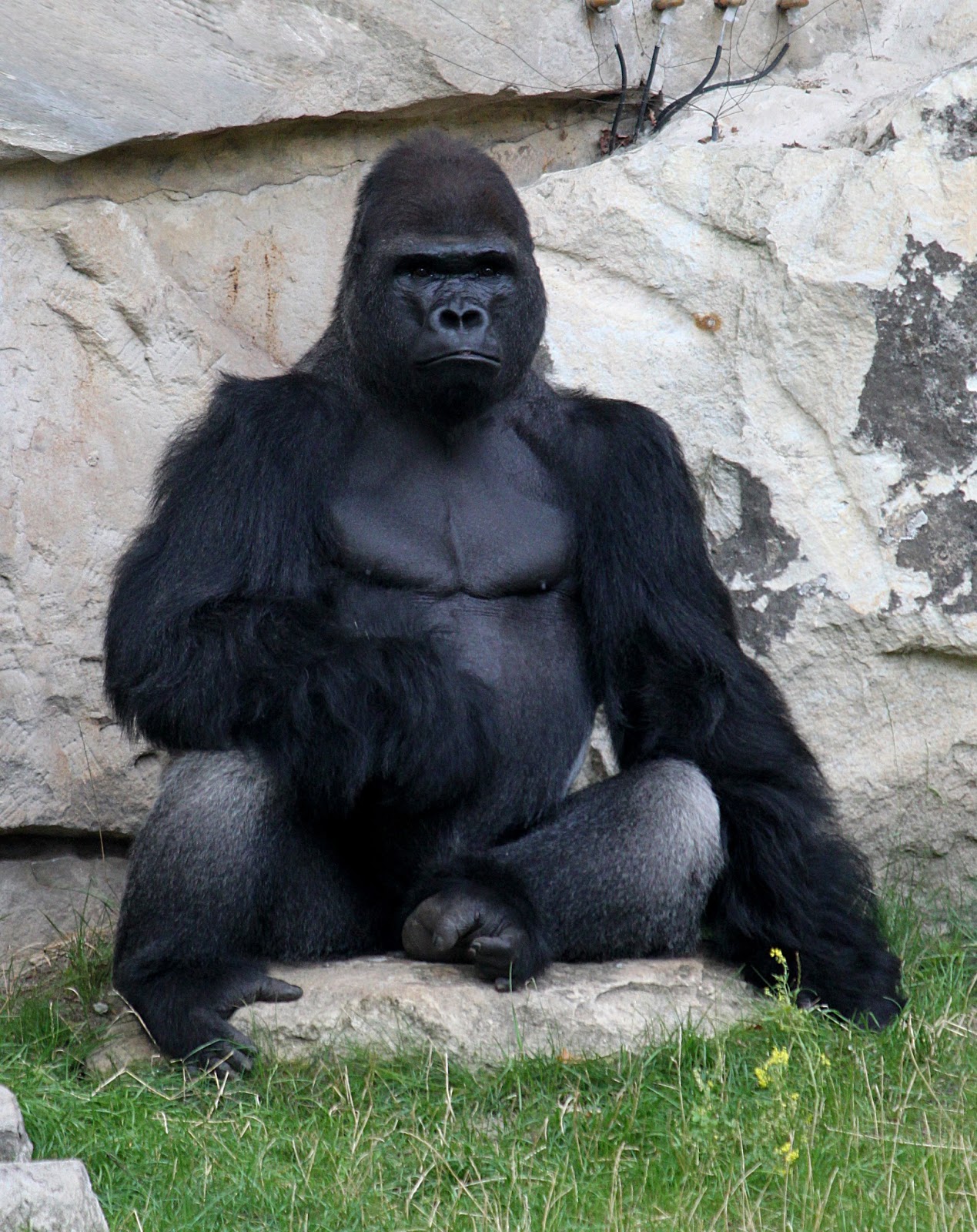Have you ever paused to marvel at the majestic power and gentle demeanor of gorillas? These incredible creatures inhabit the heart of Africa, and they have captivated the minds and hearts of many around the world. From their social structures to their complex behaviors, gorillas are more than just animals; they are a reflection of our own humanity. As we delve deeper into the world of gorillas, the phrase "show me a gorilla" resonates with curiosity and fascination.
Gorillas are the largest primates on Earth and belong to the family Hominidae, which also includes humans, chimpanzees, and orangutans. Observing these magnificent animals in their natural habitat allows us to understand their importance in the ecosystem and the need for their preservation. The phrase "show me a gorilla" is not just a request; it symbolizes a quest for knowledge and a desire to connect with nature in a profound way.
As we embark on this exploration of gorillas, we will uncover fascinating aspects of their lives, their habitats, and their roles in the animal kingdom. Whether you are an animal enthusiast, a conservationist, or simply curious about wildlife, this article will provide you with an in-depth look at what makes gorillas so special. So, let’s dive in and answer the burning question: what do we really know about gorillas?
What Are the Different Species of Gorillas?
Gorillas are classified into two main species, which are further divided into subspecies:
- Western Gorilla:
- Western Lowland Gorilla
- Cross River Gorilla
- Eastern Gorilla:
- Eastern Lowland Gorilla
- Mountain Gorilla
Why Are Gorillas Endangered?
Gorillas face numerous threats that have led to their endangered status. These include:
- Habitat Loss: Deforestation and agricultural expansion have drastically reduced their living spaces.
- Poaching: Gorillas are hunted for bushmeat and captured for illegal wildlife trade.
- Disease: Diseases such as Ebola have had devastating impacts on gorilla populations.
- Human Conflict: Civil wars and conflicts in Africa disrupt conservation efforts.
Where Can You Find Gorillas in the Wild?
To truly experience the wonder of gorillas, one must venture into their natural habitats. The best places include:
- Virunga National Park: Located in the Democratic Republic of the Congo, this park is home to the endangered Mountain Gorilla.
- Bwindi Impenetrable Forest: Found in Uganda, this UNESCO World Heritage site offers opportunities for gorilla trekking.
- Loango National Park: In Gabon, this park provides a unique chance to see Western Lowland Gorillas in their coastal habitat.
What Do Gorillas Eat?
Gorillas are primarily herbivores, with their diet consisting of:
- Leaves
- Stems
- Fruits
- Flowers
They can consume up to 40 pounds of vegetation daily, reflecting their role as important consumers in their ecosystem. Their feeding habits also contribute to seed dispersal, promoting biodiversity.
How Do Gorillas Communicate?
Gorillas have a complex system of communication that includes:
- Vocalizations: They use grunts, roars, and barks to convey messages.
- Body Language: Posture, gestures, and facial expressions play a critical role in their interactions.
- Facial Expressions: Gorillas can show emotions such as happiness, anger, and fear through their facial cues.
What Is the Social Structure of Gorilla Groups?
Gorillas live in groups called troops, which are typically led by a dominant male known as a silverback. The social structure includes:
- Silverback: The leader that protects and provides for the group.
- Females: They often form strong bonds with each other and the silverback.
- Juveniles: Young gorillas learn social dynamics and play an essential role in group interactions.
How Can You Help Conservation Efforts for Gorillas?
There are several ways you can contribute to gorilla conservation:
- Support Wildlife Organizations: Donate to or volunteer with organizations focused on gorilla conservation.
- Promote Sustainable Tourism: Choose eco-friendly travel options that benefit local communities and wildlife.
- Raise Awareness: Educate others about the importance of preserving gorilla habitats and the threats they face.
What Are Some Fun Facts About Gorillas?
Here are a few fascinating facts that might surprise you:
- Gorillas share about 98% of their DNA with humans, making them our closest relatives in the animal kingdom.
- They are known to use tools, such as sticks to gauge water depth before crossing rivers.
- Gorillas can show a range of emotions, including joy, sadness, and empathy.
- Despite their size, gorillas are generally gentle and shy animals.
Conclusion: Show Me a Gorilla
The phrase "show me a gorilla" encapsulates a desire to connect with these magnificent beings and understand their world. As we have explored, gorillas are not only fascinating creatures but also play a crucial role in maintaining the balance of their ecosystems. Protecting them is essential for our planet's health, and by raising awareness and supporting conservation efforts, we can ensure that future generations can experience the beauty of gorillas in the wild.
Whether you are planning a trip to see gorillas in their natural habitat or simply wish to learn more about them, remember that every effort counts in safeguarding these incredible animals. Together, let us advocate for their protection and celebrate the wonders of the animal kingdom.
Unveiling The New Riven Skin: A Game Changer In The League Of Legends Universe
Mastering The Art Of How To Draw Swim: A Step-by-Step Guide
Unbreakable Bonds: The Meaning Behind "Never Gonna Desert You"


